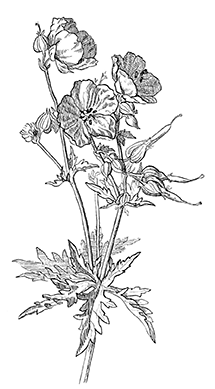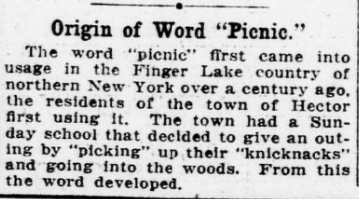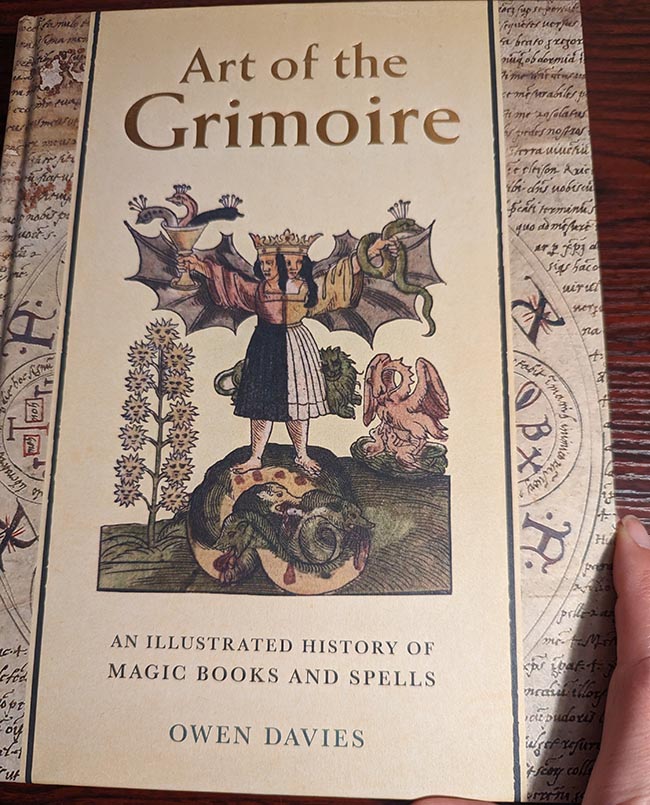
The following perfume and aromatic vinegar recipes were originally published in 1902. The article is placed here for historical research only.

The Health Giving Properties of Perfume
Recipes for Making Perfumery and Aromatic Vinegar
Perfumes are health and beauty giving, as well as refreshing and stimulating. Their use, therefore, is not wholly a matter of taste, there are hygienic reasons why certain perfumes are particularly suitable – indeed, at one time they were recognized as remedies for various diseases. Lavender, for example, soothes the nerves, and the lavender scented sheets of our grandmothers were not only deliciously fragrant, but were capital sleep promoters. Jasmine, on the other hand, induces nerve exhaustion and depression.
Pliny records over four score remedies derived from odorous rue, half that number whose base was mint; thirty-two balms from roses, and as many or more from lilies and violets.
A difference of opinion exists in regard to the propriety of using perfume upon the person. We all protect, I think, against the use of musk and patchouli. Carbolic acid is fragrant in comparison. A clean, sweet perfume, delicate and subtle, is quite another thing. Doctors even tell us that a handkerchief may be made antiseptic by its use. The handkerchief may easily prove a source of infection, for it is the common receptacle of secretions from the nose and mouth, and the use of an antiseptic handkerchief is perfectly consistent with the dictates of common bacteriological evidences. Germs may be destroyed partly by the action of the spirit of the scent, and partly by the essential oils. Before, therefore, we condemn the persons who use scent upon their handkerchiefs we should remember that they may actually be doing good to their neighbors by checking the distribution of infectious materials.
In classic times one-twelfth of the bridal dowry was set apart for the purchase of perfumes, so necessary a part of the trousseau were they considered. Without advocating any such wholesale use of scents and toilet waters during the summer, at least, a modest collection is rather necessary, and no toilet table is complete without its bottles of perfume waters and aromatic vinegars to refresh worn nerves, to give brilliancy to the skin and a delightful, subtle fragrance to the person.
Toilet or aromatic vinegars are one of the best astringents for the skin inclined to be loose and flabby. After washing the face, rinse with water, say a pint, to which two teaspoonfuls of the toilet water has been added. The luxury and effectiveness of any bath is increased by the use of orange flower or rose water, and the addition of three or four ounces of glycerin imparts to the skin a smoothness, “satin finish” and a delightful sensation of softness obtainable by no other means. The quantity of water used need not exceed two or three quarts if judiciously managed; where expense is an object the body may be sponged with a single quart of less, placed in a basin, instead of using the bath.
Sweet Flower Scents
Lavender, rosemary, jasmine, elder flower, orange flower, rose, lilac and clove pink, either fresh or dried, are digested, as it is called, in wine vinegar for a week, with frequent agitation or stirring, and then strained through thin muslin and afterward filtered through blotting paper. One pint of vinegar requires four ounces of flowers. To the filtered product add fifteen drops of the particular essential oil; stir briskly for some time and again occasionally.
Lavender water is prepared in this way or as follows: Steep for one hour over a slow fire, in a covered double boiler, one-half pound of lavender flowers in two gills of water. On removing from the fire add one quart of alcohol, strain and keep in a closely stoppered bottle for use. Another lavender water calls for one ounce of oil of lavender, two ounces of extract of ambergris and one pint of spirits of wine. Still another: After steeping a handful of lavender flowers in a little water for an hour and straining, add to the liquid two drams oil of lavender, one-half dram oil of bergamot and five drops of benzoin. Oil of lavender, it is will to remember, if sprayed about a room, through an atomizer, will banish flies and give mosquitoes an uneasy feeling that they are not wanted, that their room is desired to their company.
Another delightfully refreshing scent is made by thoroughly mixing the following: Oil of lavender, 20 drops; oil of lemon, 40 drops; oil of rose, 10 drops; essential oil of bitter almonds, 10 drops; spirits of wine, 2 ounces.
Best for the Skin
One of the best of skin cosmetics is Hungary water. It requires: Oil of lavender, 1 dram; oil of rosemary, 2 drams; orange flower water, 2 gills; alcohol, 1 pint. Mix well. This if fragrant and stimulating. Hungary water has from time immemorial had a great vogue, and most extraordinary virtues were formerly attributed to it, even renewal of youth.
Marseilles vinegar, which has an agreeable and refreshing odor and is particularly useful in purifying the air, is made of rosemary flowers (dried), 1/2 pound; sage flowers (dried), 1/2 pound; lavender flowers (dried), 1/2 pound; rue (fresh), 3 ounces; cloves (bruised), 2 drams; camphor dissolved in spirit, 2 ounces; distilled wine vinegar, 5 quarts. Digest for a week, with frequent stirring; pour off the liquor, press out the remainder and then filter the liquid through a thin muslin rag. Keep in bottles. It is said that this medicated vinegar was invented by four thieves of Marseilles. “Four thieves” vinegar is the name by which it is commonly known abroad. The four thieves used it during a visitation of pestilence, and so successfully that they escaped the disease. Garlic was one of the original ingredients.
An aromatic vinegar, which is a refreshing addition to the bath, calls for: Concentrated acetic acid, eight ounces; oil of lavender, two drams; oil of rosemary, one dram; oil of cloves, one dram; camphor, one ounce. First, dissolve the bruised camphor in the acetic acid, then add the oils. After a few days – with frequent shakings – it is strained and ready for use.
A perfume with a delightful fragrance is bouquet de la Reine. This is made of: Oil of bergamot, two drams; oil of lavender, two drams; oil of verbena, one-half dram; essence of ambergris, two drams, essence of jasmine, two drams; alcohol, two gills. Mix thoroughly.
Rose and Violet
A delightful rose perfume is made of: Oil of rose, one-half dram; oil of rose geranium, one dram; essence of ambergris, one dram; neroli, one-half dram; alcohol, one gill.
The violet perfume of the shops is usually tincture or spirit of orris-root and is prepared as follows: Take of Florentine orris root, in powder, four ounces; alcohol, one pint. Macerate for a fortnight, with frequent agitation.
Honey of violets, used to perfume the breath, is made by taking expressed juice of violets, one ounce; clarified honey, two ounces. Mix well and keep in glass or porcelain.
Honey of roses requires dried red rose petals, one ounce; boiling water, two gills. Infuse for three hours, then press out and strain the liquor. After a week, pour off into a glass that there may be no sediment and add three ounces of clarified honey. Evaporate by the heat of a water bath to a proper consistency and put in a cool place. The following day pour off the clear portion. Added to water it makes an astringent wash for sore mouth or tender gums and sweetens the breath.
Conserve of lavender, for the same purpose, is made by beating into a smooth paste one part of fresh lavender flowers and three parts clarified honey. Half a teaspoonful of this may be taken as desired.
Almond Preparation
A preparation of almonds is pasta royale. Blanch one-half pound of Valencia almonds, reduce them to a smooth paste by patiently pounding them in a mortar, adding gradually toward the end one ounce of rose water, or a trifle more if necessary, and five drops of oil of rose. Keep in a well covered porcelain jar. Pasta royale is a sovereign remedy for incipient wrinkles; it is used in the process of massaging.
Jordan almonds are the best for toilet purposes; the next quality are Valencia almonds, which are cheaper than the preceding and usually substituted for them. The other varieties of “sweet almonds” are inferior. Bitter almonds have a bitter flavor; in any quantity they are poisonous. Oil of almonds is obtained by expression from both bitter and sweet almonds; the essential oil of almonds is obtained from bitter almonds by distillation. It is highly poisonous.
To blanch almonds, soak in warm water until the skin can be removed easily by pressure between the thumb and forefinger. They are then peeled, rinsed in cold water, drained and dried, either by wiping them with a soft cloth or by exposure to the air or sun. Unblanched almonds are scarcely ever used in toilet preparations.
When one would play the amateur perfumer she must get together not only the oils, essences, extracts and flowers, but also a mortar and pestle and a pair of scales. It is convenient to make a memorandum of the equivalents of measures. The following is submitted: Teaspoonful, 1 fluid dram; dessertspoon, 2 fluid drams; tablespoon, 4 fluid drams; wineglassful, 2 fluid ounces; teacupful, 5 fluid ounces; tumblerful, 8 fluid ounces; thimbleful, 3/4 fluid dram; pinch of leaves or flowers, 1 dram; handful, 10 drams.
For a bald spot about as large as a quarter of a dollar, apply a lotion of quinine, 10 grains; fluid extract of jaborandi, 1/2 dram; tincture of cantharides, 1 dram; sweet oil, 1 dram; glycerin, 1 ounce; bay rum, 3 gills. Apply this every alternate day for a month, use a brush or the fingers, and shake thoroughly before using.
For pimples on the face be careful about food; stimulants of all kinds should be avoided, hot coffee, tea, chocolate and milk. Red meats, ripe fruits and vegetables should form the main part of the diet. Bathe the face daily with a lotion of salt of tartar, 1 dram; glycerin, 2 ounces.
If this does not effect a cure, use lemon juice and glycerin for a wash; to the strained juice of a fresh lemon add one ounce of glycerin. Do not relax care of the diet; take exercise and a daily bath of the entire body; also a foot bath at night; for the latter use washing soda, about a cupful to two gallons of water, as hot as can be borne.
Source: Evening star. [volume] (Washington, D.C.), 02 Aug. 1902.


